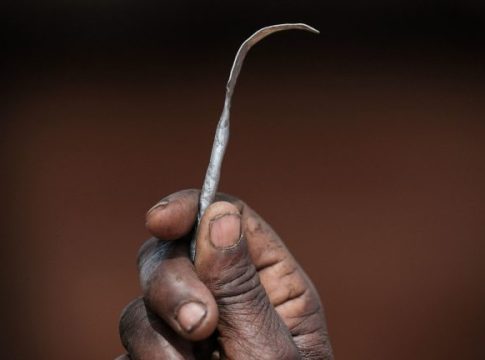Sierra Leone has made a significant advancement in protecting the rights of its young girls by passing a law that prohibits child marriage. The Prohibition of Child Marriage Act criminalizes marrying girls under 18, with a minimum jail term of 15 years or a fine exceeding $2,000. However, activists are urging the government to go further and address the pervasive practice of female genital mutilation (FGM) in the country.
While celebrating the progress made in ending child marriage, Josephine Kamara, advocacy director at Purposeful, a women and girls’ activism organization, notes that “you cannot be blinded to the fact that there is a practice that still perpetuates child marriage.” She adds, “If you refuse to solve it, and if you’re silenced about it, then any action to end child marriage might just be lip service.”
FGM, which involves the partial or total removal of the female external genitalia or other injury to the female genital organs, is a harmful practice that can lead to serious health problems, including infections, bleeding, infertility, and complications in childbirth. In Sierra Leone, 83 percent of women aged between 15 and 49 have undergone FGM, according to a 2019 Demographic Health Survey.
READ MORE: Govt. Warns Against Increase Risk Of Cholera Due To Flooding, Heavy Rainfall
Activists like Kamara and Alimatu Dimonekene, an FGM survivor and campaigner, are concerned that the child marriage ban may not be effective in rural areas where FGM is still prevalent. Dimonekene notes that “the reason in Sierra Leone girls are cut so early is because (the families) want them to get married.” She adds, “Sometimes the families say, ‘Oh, we found her a suitor, or the suitor is paying for us to do the FGM.’ Usually, that child is married off the next day to whoever, because it’s the same traditional leaders.”
Kamara also expresses concern about the implementation of the child marriage ban, particularly in rural areas, if communities are still able to carry out FGM.
“It’s really conflicting information we’re sending,” she says. “We’re saying no more marriage, but then we’re leaving the institution that is a marketplace for marriage.”
The activists are calling for a holistic approach to ending the suffering of children, including addressing FGM and child marriage together.
As Rugiatu Turay, founder of the Amazonian Initiative Movement, notes, “Ending child marriage alone will not stop, will not reduce the practice of FGM.” She adds, “Legislators need to look at a holistic approach to ending the suffering of children, not separating one issue from the other.”




